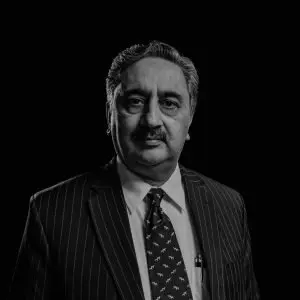
In a short period of about seven years since he was appointed Crown Prince, Saudi Arabia’s Muhammad Bin Salman has unfolded a bold kind of ‘new world’ vision of the future of the country. The broad set of social, cultural, and social reforms, along with the massive infrastructure development projects, new cities, conversion to green energy, and tourism highlighting and celebration of ancient roots of the country in arts, literature, and tradition, offer a new branding for the country.
The vision is a modern, modernist Saudi Arabia, a cultural center of the Arab world and an economic and security pillar of the emerging Middle East. The new vision that the crown prince is pursuing was unthinkable just a decade ago.
No other Islamic country, in the recent past, has done so much in such a short period of time to integrate with global cultural and social streams like sport, entertainment, education, science and technology, and more importantly, in laying the foundations of a post-oil economy. With hundreds of billions of sovereign assets, Saudi Arabia invests globally in innovative industries and technologies, as much as the global economic giants are turning to the flourishing Saudi market in diverse fields.
Regionally, Saudi Arabia has been a voice of reason, stability, and order and has countered state and non-state efforts to create instability in the region, while seeking solutions to complex issues of power, identity, autonomy and statehood. One can see a connection between internal transformation and consistent efforts toward creating a peaceful neighborhood, but without altering the central geopolitical alignments. Under the Crown Prince, Saudi Arabia has taken a futuristic direction for its identity and social and economic progress as an emerging regional power and global player. The question is, will Pakistan take a page out of its book and follow, or stay mired in its own problems?
Pakistanis have always looked toward Saudi Arabia as a model of religiosity, rule of law and speedy justice. These influences go deep and wide in society as the country is held in high esteem at the popular level. There is no other country that gets the respect and veneration among the Pakistani masses that’s comparable to Saudi Arabia. People are often sentimental, considering the popular beliefs of a holy land and the deep-seated idea of the center of religious direction. The roots of this sentimentality are in the history of Islam and obligatory religious rites of pilgrimage that Muslims in this part of the world have performed in every age. Millions of Pakistanis who have worked and continue to work in Saudi Arabia in multiple professional fields have brought back religious, cultural and economic influences to the country. The bonds of love and affection at a common level are mutual, and on the Pakistani side, it appears they are unconditional.
State-to-state relations have flourished in the fields of security, economic development and trade. The two countries have the same regional geopolitical outlook regarding security and stability. For decades, they have coordinated their defense policies and formed formal and informal alliances to deal with threats to the security of each other from state and non-state actors. From Soviet intervention in Afghanistan to the war on terror, they have been on the same page. There is a unanimity of views among Pakistani leaders regarding the importance of Saudi Arabia in the country’s strategic and security thinking. In the changing dynamics of the region and the world, they have set Pakistan within the circle of Saudi influence. But the thing is that Saudi Arabia, under the vision and leadership of Crown Prince Muhammad Bin Salman, has changed. Sadly, Pakistan has yet to grasp the importance of monumental changes underway there and reform itself to stay aligned with the Saudi Arabian vision of modernity, progress and development.
For this to happen, Pakistan must make itself investment-friendly by easing the rules of business and reforming its economic and legal structures. Time is a crucial variable; more failures and unending crises may make it difficult for Saudi Arabia to help Pakistan if it continues to remain a rudderless ship in its self-inflicted troubles.
– Rasul Bakhsh Rais is a Professor of Political Science in the Department of Humanities and Social Sciences, LUMS, Lahore. His latest book is “Islam, Ethnicity and Power Politics: Constructing Pakistan’s National Identity” (Oxford University Press, 2017).
—
Disclaimer: Views expressed by writers in this section are their own and do not necessarily reflect The Law Today Pakistan’ point-of-view
— Courtesy : Arab News




